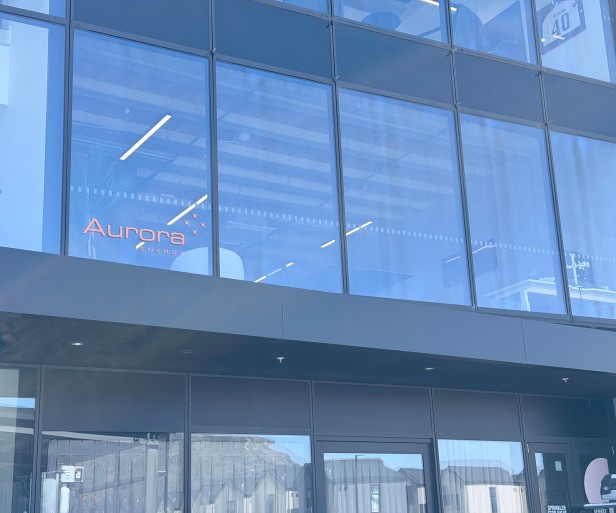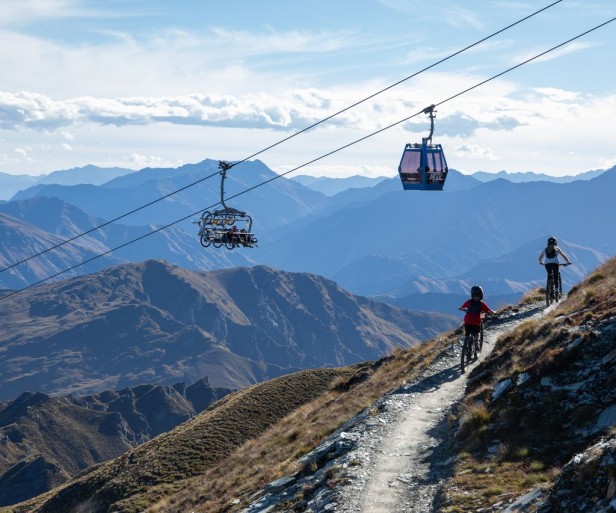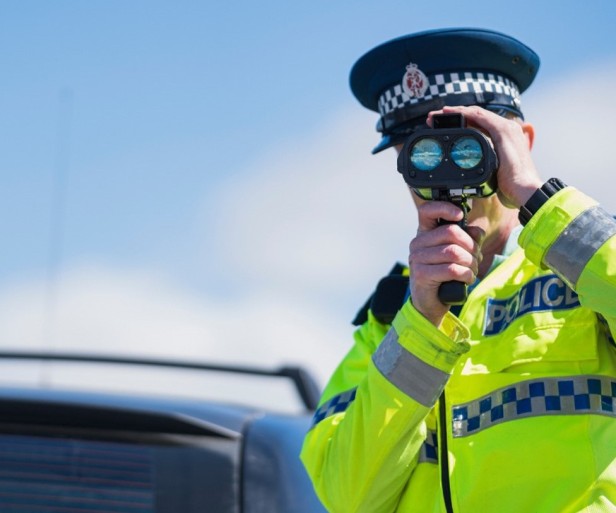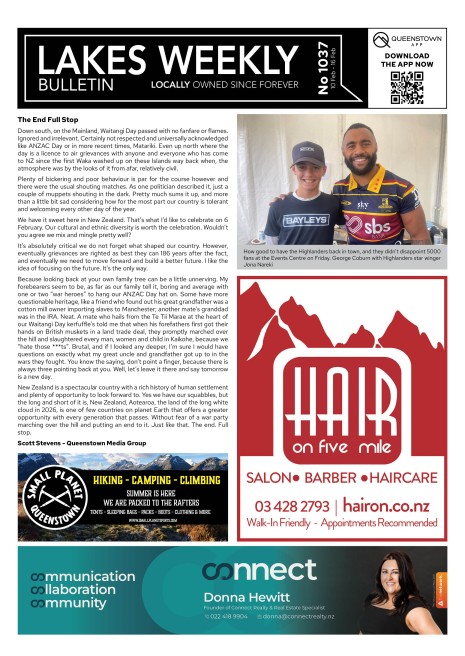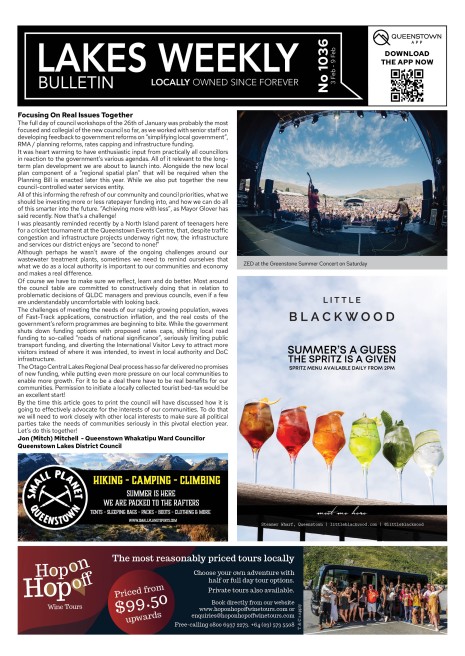Queens-city? We're not there yet
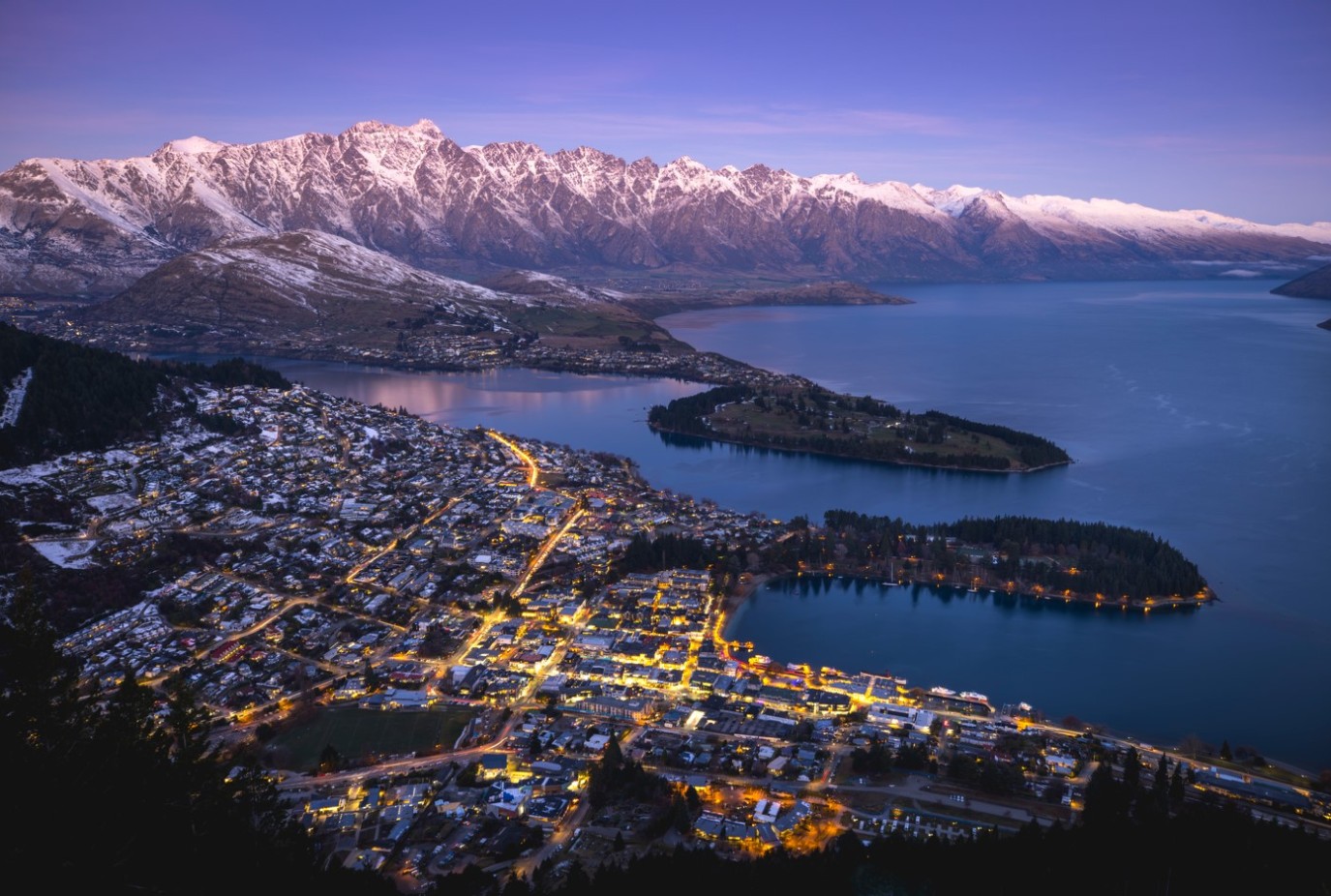
Queenstown is still a town according to the latest figures from Stats NZ.
The town had been widely expected to surpass the 30,000 population figure needed for a urban area to be classed as a city, before the latest subnational yearly estimates were published on Friday.
But it missed by a whisker, with an estimated population at 30 June, 2024, of 27,700. That's up from 27,000 in 2023 and just 15,000 in 2014.
Queenstown Lakes District, however, has already passed the landmark city-sized 50k figure for a territorial authority. Some 52,400 people now live here, up 1400 from last year, or 2.8%. But it has a rural, rather than urban, geography.
Even when Queenstown itself passes the 30k mark, district mayor Glyn Lewers says council won't seek to differentiate it from Queenstown Lakes.
"We won't be going to the Local Government Commission to be asked to be called a city. We're a district," he tells our Outlet Podcast.
"We've got many communities in and around this district including Wānaka, Luggate, Hāwea, Makarora, Kingston, Glenorchy ... so just to single out Queenstown and call it a city ... no, my focus is trying to get the level of service [needed] and trying to meet the needs of the whole, of all the people around the district."
Lewers discusses the massive challenges and opportunities of population and visitor number growth, in this week's episode of the Outlet Podcast. That includes the nine projects on the Government's new Fast-Track process, which could create 6000 homes but also major problems for infrastructure.
"It's a concern for infrastructure, not just the infrastructure we deliver but also Crown infrastructure, such as energy, schools, health," Lewers says.
"The proposals themselves, a lot are heavy on housing, and there's no argument there, we need housing in this district. But there are some areas where the infrastructure to support that housing is not actually present in those areas. So, look, it's a challenge. There's a few raised eyebrows within council, I can say that."

Queenstown Lakes Mayor Glyn Lewers
Lewers doesn't believe the Fast-Track process is designed to circumvent environmental protections, however, but instead is a way to consider all the legislation at once. But he admits there is some concern about how councils can be involved in the process.
In the next few weeks, the Government is also expected to announce the five areas chosen to submit proposals for the new Regional Deals, enabling them to use new funding tools and levels of debt.
QLDC has spoken to Central Otago District Council, Ngāi Tahu and the private sector about a potential application.
"There's no major announcement yet," Lewers says. "It's in a little bit of a holding patten until we find out the direction and if we're one of the chosen ones. I will either be sad or happy. I don't think they'll be any neutral emotion there."
Lewers discusses several other topics, including the 15% pay rise for QLDC chief executive Mike Theelen, in this week's Outlet Podcast. Give it a listen on the Lakes Weekly Bulletin website lwb.co.nz and the Queenstown App.


